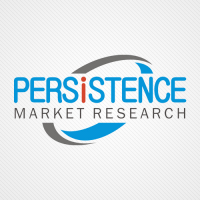IoT to Redefine the Cognitive Framework of Software Asset Management
Persistence Market Research has announced the addition of the “Global Market Study on Software Asset Management: On-Premise Deployments to Lose Steam Post 2023" report to their offering.

New York, NY -- (SBWire) -- 04/25/2019 --The Internet of Things (IoT) is changing the manner in which organizations conduct their business. A growing number of devices connected to the internet (a whopping 26 billion devices by 2020) will be accompanied by the associated challenges in managing this huge interconnected device and software ecosystem. Organizations should specifically watch out for the ramifications in software licensing models that will need to adapt to emerging IoT scenarios in the near future.
Software Asset Management (SAM) Best Practices Will Be Driven by IoT Even as Organizations Beef Up Their Digital Transformation Initiatives
The proliferation of IoT enabled devices across the enterprise – not to mention the rising adoption of Bring Your Own Device (BYOD) and Bring Your Own Identity (BYOI) – will bring with it issues pertaining to data privacy, security, and sustainability of service delivery models. While organizations are hurriedly introducing products that can seamlessly connect with each other and communicate using cloud based systems, there is very little emphasis on access control and data safety. With this mad rush towards IoT enablement, management of enterprise data assets can become quite a challenging task, if organizations do not devise a robust readiness plan.
Request for sample reports@ https://www.persistencemarketresearch.com/samples/18409
It is but obvious that IoT will expand the scope of enterprise software asset management. Whether on cloud or on-premise, SAM professionals need to take into cognizance the implications of challenges brought about by IoT and set up a robust framework comprising the best tools, systems, and resources within the organization.
The Big IoT Threats to IT Asset Management
IoT primarily brings with it three main challenges as discussed above – data privacy, data security, and service sustainability. Billions of devices connecting to one another implies transmission of a humongous amount of sensitive data such as medical records, financial data, and other personal information; and this data will need to travel with utmost privacy across the internet. Software asset managers need to ensure that they gather only such data as is relevant to the organization and fully control movement of this data on public networks. Data privacy is of utmost importance especially now with the coming into force of the General Data Protection Regulation (GDPR) across the European Union.
Request for Methodology@ https://www.persistencemarketresearch.com/methodology/18409
Data security in the context of IoT essentially refers to device control. IoT will open doors to newer enterprise assets with different licensing requirements and device security will be of paramount importance. Organizations need to track movement of these IoT enabed devices within the enterprise and put in place the necessary mechanisms to mitigate costs arising on account of device loss or theft.
The other big challenge is in service sustainability. Organizations need to focus on ensuring the sustainability of the IoT ecosystem including management of devices and software, portability and aggregation of data, and control over the internal source code.
Media Relations Contact
Abhishek Budholiya
Marketing Head
Persistence Market Research
1-800-961-0353
https://www.persistencemarketresearch.com/market-research/thin-film-photovoltaic-cells-market.asp
View this press release online at: http://rwire.com/1204826